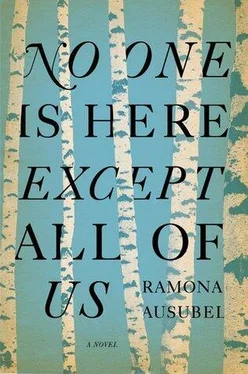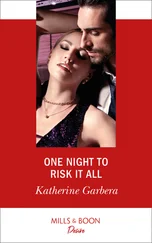A prayer slipped out of Igor’s mouth. It was the first time he had prayed since his arrival on the island and the long-lost taste of those words was dusty and sweet.
One soldier came to the bars, studied Igor. “Wait, are you Jewish?” he asked softly. Igor looked up at him. He did not know the answer to this question. Once, in another place and time, he had been a Jew in a world full of Jews. “Why are you still holding this man?” the soldier asked Francesco. “You should have freed him long ago.”
“What?” Francesco and Igor both asked at the same time. Francesco squeezed his fist, but this did not stop the feeling that everything he loved was slipping away. And for the prisoner, freedom was a sharp word. Free to go where? Igor thought.
The soldier kicked the bars of the cage, making it rattle. “Italy has joined the Allies, or hadn’t you heard?” he mocked. He moved into the light and Igor could read the name embroidered on his uniform: Weinberg. “Do it now!” the soldier yelled, and Francesco took the key from around his neck and unlocked the door. Igor stood up, came to the opening. Igor watched Francesco’s shaking hands turn the key over and over.
“He’s been good to me. Please don’t hurt him,” Igor said.
Weinberg turned to Francesco and said, “I’m watching you.” The soldiers began to leave.
“Excuse me,” Igor said, “free to go where?”
The soldier’s gaze fell to the floor. “I wouldn’t go home, I wouldn’t go looking for my family, if I were you.” The soldier looked out the open door where the day was bright and windless. “You’ll find a new life. Bless you.”
THE BOOK OF THE MOVING WORLD
Ilooked out at the spinning grass, knitting itself into a blur next to me, the early spring trees behind standing defined. I thought of the number of steps it would take to make this same journey. The number of times I would swing my arms. Out there I would be able to close my eyes for a few strokes without tripping, I would be able to memorize the ground and move over it blind. Outside, the number of gusts, rustles and shrieking birds. The number of beetles making a slow track across the path. All the bees roving for sweet juices. The clouds sometimes a single drift. Inside the train, everything was constant. The movement was not in added-up single steps but one long thrust forward. So decisive, so sure.
When the conductor came to check my ticket, I said, “I need to go home.”
“I don’t know where that is,” he said carefully.
“I don’t either.”
“Which direction?”
“I don’t know where I am.”
“You’re in Russia. You are headed southeast toward Odessa.”
“I’m in a country?” I asked. This idea seeming unthinkable.
“Where else?”
“The grass. The fields. The mountains.”
“Do you know where you want to go?” the conductor asked.
“I want to go home.”
He tore a corner off my ticket and shook his head. “Tell me if you can get a better idea than that.” Outside it started to rain. The windows became foggy. The trees looked weighed down and ashamed, the same as me.
The train had a car to eat in where they made cups of coffee for anyone who asked. They dropped leaves of tea into baskets. At each table two or three men relaxed, feet crossed, cups steaming. They were enjoying their journey. I wanted to ask them where they were going and where they had been. What they had survived. Which side they were on. They looked like men whose wives were preparing, at this moment, for their arrival. Pinning long hair, ironing dresses, wrestling sons into clean shirts.
I sat alone at a table and let the relaxed men relax. “Sir,” I said to the white-coated waiter, trying to sound like someone else, someone sane, someone with one name, one family, one story. “Do you know where a village called Zalischik is?”
He shook his head, not understanding me. Why did nothing I said make sense to anyone?
“Home,” I said.
He said, “We have tea, we have coffee, we have cake.”
“All right,” I said, pressing a gold coin between my fingers. “I’ll have those things, if that’s all you can offer.” Perhaps home was simply gone — a concept done away with.
I dipped my finger in the coffee and then touched it to my lips. “Do I like coffee?” I whispered to the stranger of myself. I dipped my finger in the tea and then touched it to my lips. “Is tea better?” I ate the cake quickly. I knew I liked cake. I sucked the cubes of sugar the waiter brought. I felt the coffee, milky brown, and the tea, clear and precise, roll down my throat and land warm. I watched the surface shake rhythmically with the rocking train. The objects in front of me seemed solid and real, it was the ones not in front of me that kept shifting.
The waiter came back to take my empty cups away. “Would you like to look at a map?” he asked. “I could bring you a map.”
“A map?” I asked.
“Maps are supposed to have all the places.”
“Thank you, yes, please, yes.” I had made sense to him and he to me. I wanted to shake his hand, but I stopped myself. I brushed the crumbs off the table and into my hand. I shook them into my mouth. The waiter spread the map out on my table.
“This is where we are,” he said, pointing to a line with little crosses over it. “Train tracks.” He moved his finger along the line.
“This is everything?” I asked.
The map showed so many names. Smolensk. Kursk. Stalingrad. The names were pasted to the earth. The mountains were jagged lines, the rivers were curling blue.
“Has all this always been here?”
“The names have changed. Things move around, I’m sure. But for our purposes, I’d say so.”
“Even in the beginning of the world?” He looked at me blankly.
“There’s a list on the back,” the waiter said, “arranged by spelling.” And there it was, right between Zalim and Zalizyki. In real life it had been a small island with the river curled around it. On the map it was the same.
“That’s the place I’m from. That is home,” I said, and my finger covered it completely. The river was squashed. “Show me again where we are now. And show me where we came from.”
The waiter pointed and pointed. “The train stops nearby. You could walk there.” I was still thinking about the journey my sons and I had made over all this land. I began at the place where the river curled and walked my fingers over the in-between. “That’s what happened,” I said. I could say this, and the map acted as proof. To start the world over, upturn everything we knew, had I hammered and nailed and rallied and campaigned? No. I had spoken it. Told a story. Still, when I looked at the map — the lines, the differing greens, the tiny etchings of rivers — I could not see what had really happened.
By the time the long white light of the afternoon had tired itself out and lay splattered orange on each rain-wet surface, I was on my way home. Riding in a warm cave inside me, unknown to me then, was the stew of a person. Nothing sensible yet. No specifics. Not even in miniature. But if left alone, the being would do the dance it had to do. Its body would freight in the needed supplies. The blood would stay thick and protective. Divisions and additions.
What I could feel were the wheels of the train heating up the tracks, and the distance closing in between my home and myself.
The first to greet me were our sheep, which floated dead on top of a lake that used to be their pen. The wool was beaded with water. The eyes of the sheep were rotted-out pits — anything could have made its way inside. The smell caught in my throat and made me gag.
Our streets were soaked with mud and our stones were turned on their sides, making the path unsmooth. It was no longer a street but a pile of jagged rocks. The windows in all our houses were smashed and vacant, eaten away like the sheep’s eyes. Everything was blinded. Was this a real place?
Читать дальше












